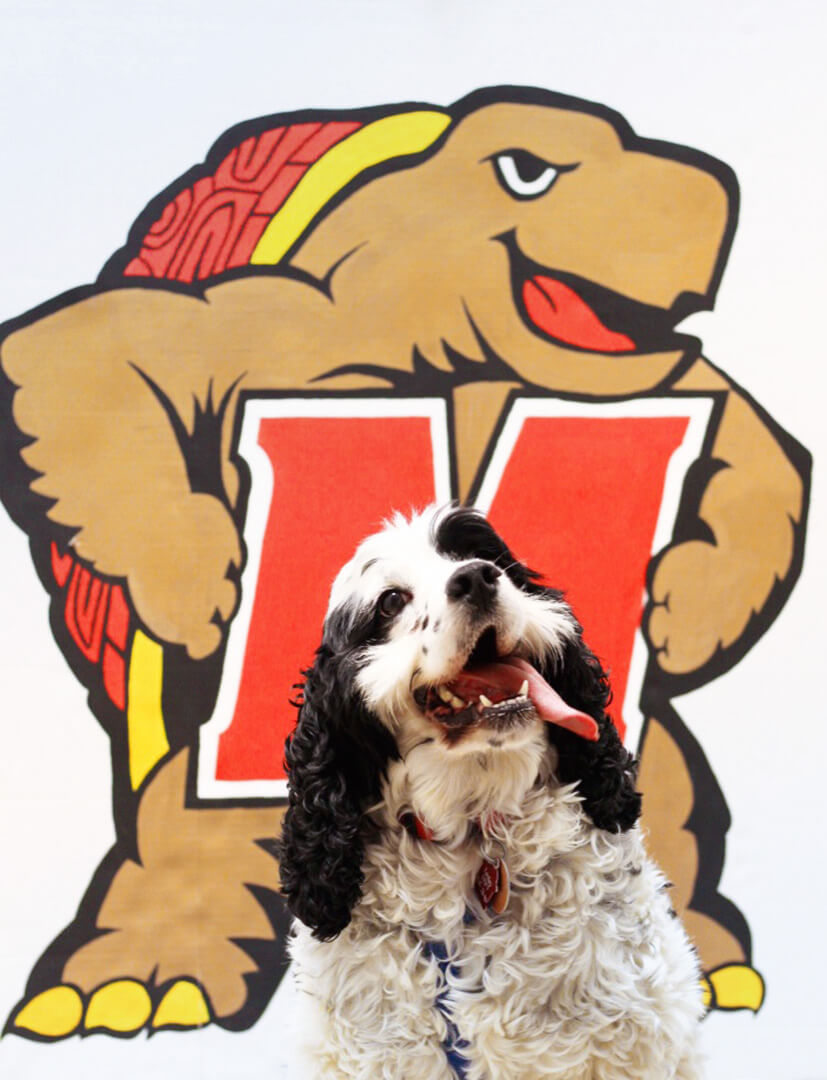- March 14, 2019
- By Liam Farrell
If you think your dog really knows his name, it’s not just your imagination. In fact, Fido is ahead of the curve compared to any babies you may have talked to recently.
In a paper published last week in Animal Cognition, Rochelle Newman, professor and chair of the UMD Department of Hearing and Speech Sciences, put four-legged friends to the “cocktail party” test to see how well they respond to their name amidst a babbling background.
The experiment was a new way to explore why infants struggle to pick their name out when background noise matches or exceeds the call for their attention, since pets, and especially service animals, are often expected to respond in noisy stores, airports and restaurants.
“Dogs are social creatures who pay attention to the adults around them and have evolved to do so,” said Newman, whose co-authors were doctoral student Amritha Mallikarjun and lab manager Emily Shroads. “In some sense, they are a really good comparison to infants.”
The study found that the dogs (kept comfortable with their owners during the experiment and never exposed to harmful noise levels) responded to their own names when repeated along with a “foil” with the same syllable and stress pattern (i.e., “Henry” and “Sasha”), and a mashed-up recording of women reading book passages.
It was only when the background noise became louder than the name call that the dogs failed to respond; by contrast, infants generally don’t respond when the stimuli are at equal volumes.
“We were kind of surprised dogs could do so at all,” Newman said. “Outperforming infants was only more surprising.”
The first takeaway from the study, she said, is that infants likely struggle in such environments due to their stage of development rather than a lack of language skills, seeing as “dogs don’t have language either and are doing better.”
The takeaway for people working with furrier companions, Newman said, is that you probably have to raise your voice or move closer when surrounding noise can drown you out—particularly important if the dog in question is a service or K-9 animal.
“Recognizing that dogs may have trouble in those settings is worth knowing,” she said.
Topics
Research